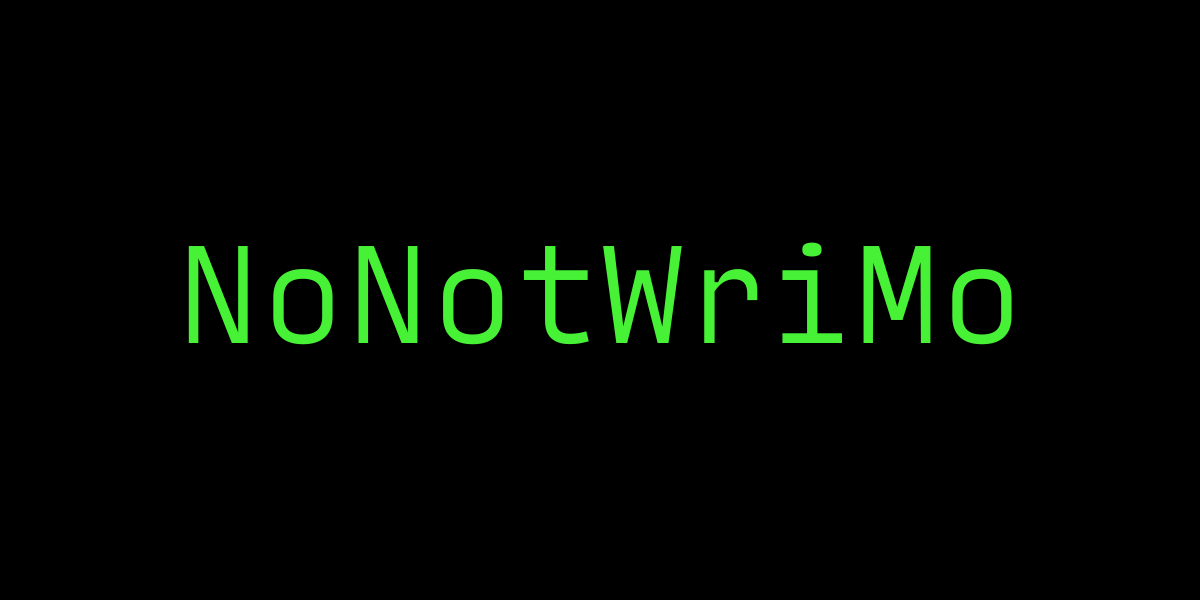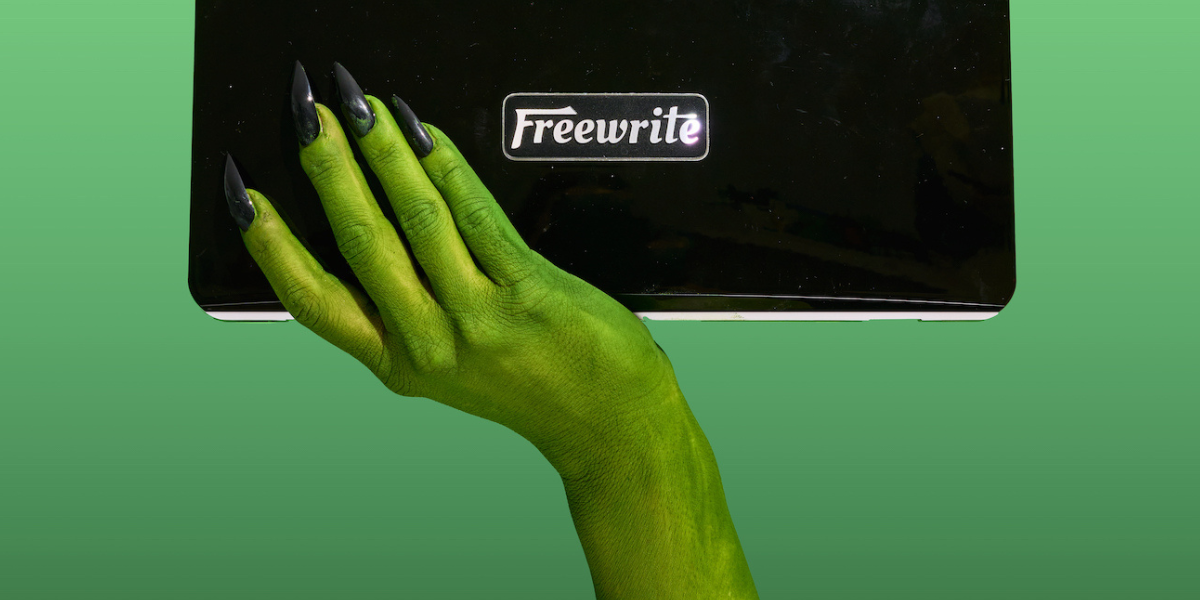On December 31, 2021, I published my 465th blog in 465 days. I successfully wrote and published an article every single day for an entire calendar year — plus one hundred days on top of that.
But it wasn’t always like this. I used to be a serial quitter.
Everything changed for me by accident. A few years before this blogging streak, in 2018, I posted a picture on Instagram with the caption, “[I’m] thinking of blogging every single day in November no matter what, do you think I can do it?”
I didn’t realize it at the time, but that silly Instagram post had everything I needed to overcome a lifetime of writer’s block and create a repeatable system that helps me execute creative ideas.

The Issue
I was always the classic example of an “idea guy.”
All ideas. Little execution. No consistency.
Here’s how it used to go for me: an idea strikes like a lightning bolt. Inspiration rattles through my very bones. I decide I will chase my new dream every day. So I create for six or maybe seven days. Then, inevitably, difficulties arise. I’m hit with an especially busy day, or writer’s block finally strikes, or a collaborator cancels on me. My brain begins to believe that I signed up for a lifetime of difficulty with no upside.
So I quit. It’s the only logical conclusion!
What was happening here?
I wasn’t clearly defining my creative act. I was making indefinite commitments. I was renegotiating with myself. And I wasn’t involving my community.
The Accident
When I shared my Instagram post in 2018, I didn’t realize it accidentally had all the elements I needed to overcome my creative inconsistency. Let’s break down the caption. “[I’m] thinking of blogging every single day in November no matter what, do you think I can do it?”
Clear Definitions
The first part, “[I’m] thinking of blogging” was an essential definition of the creative act. Notice I didn’t say “I’m thinking of becoming a writer.” That would have been too broad — too bold to believe. But I had written blogs before. They were easy. They were achievable.
“Definitive, specific plans tend to get accomplished while vague assertions wisp weakly into the wind,” author Donald Miller writes in his book Hero on a Mission. “Why? Because vague and elusive notions do not help us find narrative traction.”
When we create small, daily commitments, our ability to begin and maintain momentum increases.
Definite End Dates
The second part, “every single day in November” carried a definite end date for the creative streak. Instead of committing forever to a creative lifestyle I knew next to nothing about, I set a definite end date. Even if things got hard, I knew I wouldn’t have to endure pain with no benefit forever.
Kristen Berman at the Common Cents Lab found a 24% increase in job applications when she set a deadline. Others, at the Journal of Marketing Research, discovered that 10% of people redeemed a bakery gift certificate that was good for two months — meanwhile, 30% of people redeemed the same gift certificate that was only good for two weeks!
How does this make sense? How do people accomplish more when they have less time? When we have a long time, we procrastinate. Short time frames and hard end dates increase the velocity with which we approach projects, as well as our motivation to overcome obstacles.
Non-negotiable Commitments
The third part, “no matter what,” was a non-negotiable commitment to the creative act. It didn’t matter if I was busy that day. It didn’t matter if I had no inspiration, or if something came up, or if the blog wasn’t good. I had to publish anyway.
“[Even] if I don’t feel inspired, I need to move forward,” said The Alchemist author Paulo Coelho in an interview. “I say, ‘You, book, are fighting with me. Okay. I’m going to sit here, and I’m not going to leave you alone until I find my way out of this crossroads.’”
Angela Duckworth, author of the book Grit, uncovered the common ground between graduates of the grueling military academy West Point. It wasn’t IQ. It wasn’t physical size or strength. It wasn’t prior education. It was grit. Graduates more often identified with the statement “I finish whatever I begin.”
By not allowing ourselves off the hook of our short-term commitments, and pushing through the hard stuff, we’re able to string together meaningful creative acts.
Public Commitments
Finally, the last part, “do you think I can do it?” I asked my community what they thought. I presented my commitment to the public. I staked a portion of my reputation on it. I was no longer an undiscovered genius or a secret artist. I made a promise to the people!
“‘I’m always on time, and I always show up to things, so why don’t I do that for myself?’” said Netflix comedian Mike Birbiglia in an interview. “So I put a hand-written note next to my bed that said … 'Mike! You have a meeting at Cafe Pedlar … at 7 a.m. with your mind!’”
Functional people find a way to show up for work, pick up their kids, and arrive at appointments, even when they don’t feel like it. But so many of us struggle to follow through on these same commitments to ourselves. By making a private commitment public, we increase the friction of failure, and with it, our chances of success.
“I’m always on time, and I always show up to things, so why don’t I do that for myself?” said Netflix comedian Mike Birbiglia in an interview. “So I put a hand-written note next to my bed that said … 'Mike! You have a meeting at Cafe Pedlar … at 7 a.m. with your mind!’”
The Process
If you want to start a creative streak of your own, follow this process:
- Define a small creative act you can accomplish every day—ideally, it only takes 30-45 minutes.
- Commit to a short-term streak with an end date — 7, or 15, or 21 days is great!
- Whatever you do, don’t miss a day in the streak. The days when you create anyway, even with no inspiration, are the moments you prove to yourself that you can overcome writer’s block.
- Tell your family, friends, and audience about your commitment to the streak. Share your work!
- Stop to reflect after your streak is over. Think about what you liked, what you learned, and how you can do it again, only longer.
With each successful creation streak, you’ll gain confidence. You’ll get better at defeating writer’s block. You’ll make good work.
But most importantly, you’ll transform from an “aspiring” creative… to a real one.
--
Sources
- https://pubsonline.informs.org/doi/epdf/10.1287/mksc.2019.1177
- https://www.scientificamerican.com/article/the-secret-to-accomplishing-big-goals-lies-in-breaking-them-into-flexible-bite-size-chunks/
- https://www.scientificamerican.com/blog/mind-guest-blog/the-deadline-made-me-do-it/
- https://advanced-hindsight.com/commoncents-lab/
- https://journals.sagepub.com/doi/abs/10.1509/jmkr.47.5.933?journalCode=mrja
- Paulo Coelho interview and Mike Birbiglia interview | Title: Tools of Titans: The Tactics, Routines, and Habits of Billionaires, Icons, and World-class Performers; Publisher: Houghton Mifflin Harcourt; Published year: 2016; Author: Timothy Ferriss
- Donald Miller | Title: Hero on a Mission: A Path to a Meaningful Life; Publisher: HarperCollins Leadership; Published year: 2022; Author: Donald Miller
- Angela Duckworth | Title: Grit: The Power of Passion and Perseverance; Publisher: Scribner; Published year: 2016; Author: Angela Duckworth
























